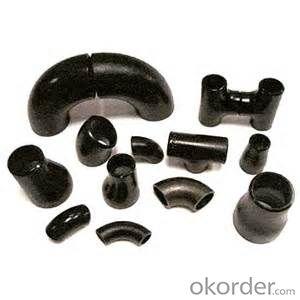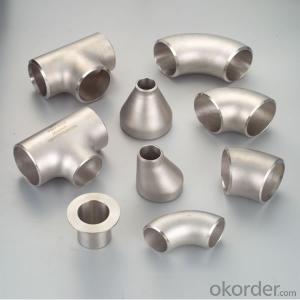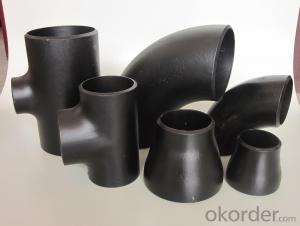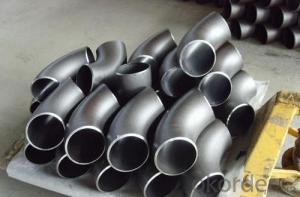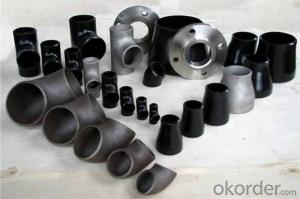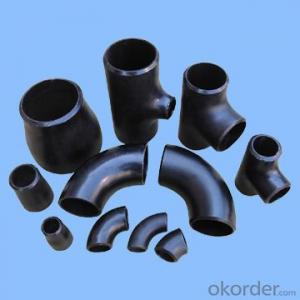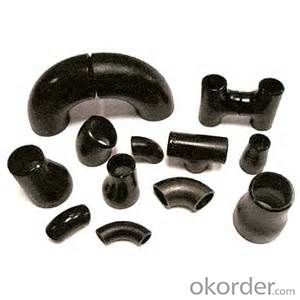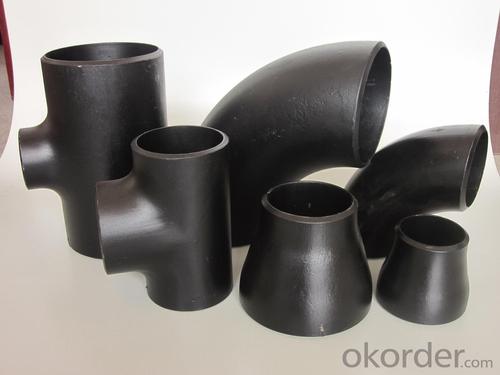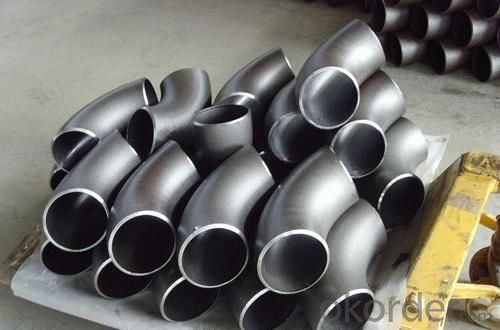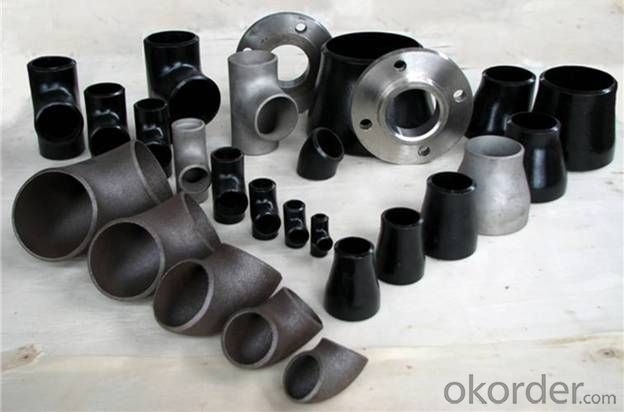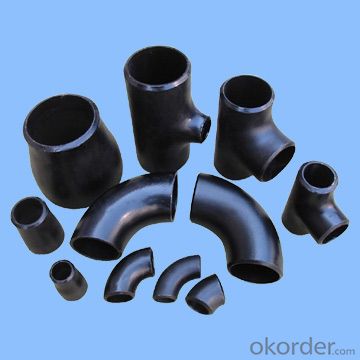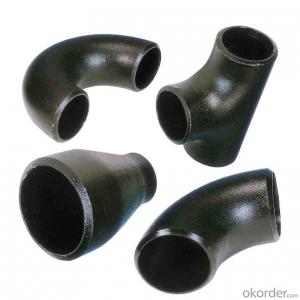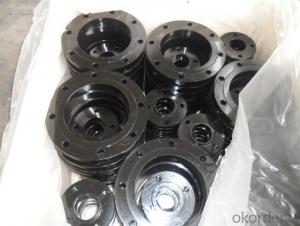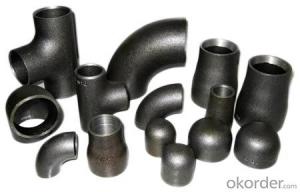CARBON STEEL PIPE FITTINGS ASTM A234 TEE 1''-12''
- Loading Port:
- Tianjin
- Payment Terms:
- TT OR LC
- Min Order Qty:
- 5 m.t.
- Supply Capability:
- 30000 m.t./month
OKorder Service Pledge
OKorder Financial Service
You Might Also Like
Specifications
1.we produce seamless steel pipe
2.size:48-219*4.5-45mm
3.ISO 9000 approved
4.Market:south/east Asia,Mid-east,South America
seamless steel pipe
Material J55 K55 N80 L80 P110.etc
Standard ASTM JIS
Usage conveying oil gas ,oil pipe line,pipe material collar,oil nature gas,
Packing wooden cases or wooden pallet ,export standard package
Others:Special design available according to requirement
Anti-corrosion available and high temperature resistence
Delivery time 30days
Payment term T/T L/C
Name | API oil casing pipe | ||||
Out Diameter | Wall thickness | Material | Thread | Length | |
in | mm | ||||
5 1/2 | 139.7mm | 6.20 | J55/K55/N80 | LTC/STC/BTC | R2 |
6.98 | |||||
7.72 | |||||
9.17 | |||||
10.54 | |||||
6 5/8 | 168.28mm | 7.32 | J55/K55/N80 | LTC/STC/BTC | R2 |
8.94 | |||||
10.59 | |||||
12.06 | |||||
12.06 | |||||
8 5/8 | 219.08 | 8.94 | H40 | S/L/B | 9 5/8R2 |
J55/K55 | S/L/B | ||||
10.6 | L80 | L/B | |||
12.7 | L80 C95 | L/B | |||
14.15 | P110 | L/B | |||
9 5/8 | 244.48 | 13.84 | J55 K55 | R2 | |
15.11 | L80 | L/B | |||
10 3/4 | 273.05 | 11.43 | J55 K55 | S/B/E | R2 |
13.84 | P110 | S/B | |||
15.11 | P110 | S/B | |||
11 3/4 | 298.45 | 12.19 | J55 K55 | S/B | R2 |
10.96 | J55 K55 | S/B | |||
13 3/8 | 339.72 | 12.19 | J55 K55 L80 | S/B | R2 |
10.92 | J55 K55 | S/B | |||
13.06 | L80 | S/B | |||
Coupling and thread can be required according to customer requirment
- Q: Can steel pipes be used in plumbing systems?
- Yes, steel pipes can be used in plumbing systems. Steel pipes are commonly used for plumbing installations due to their durability, strength, and resistance to corrosion. They are often preferred for larger water supply lines and can handle high pressure and temperature conditions. However, steel pipes require proper insulation to prevent heat loss and are typically more expensive than alternative materials like PVC or copper pipes.
- Q: How are steel pipes coated for insulation purposes?
- Various methods and materials are commonly used to coat steel pipes for insulation. One method involves applying a thermal insulation coating, typically made of a high-performance polymer or epoxy-based material, to the surface of the pipe. To ensure proper adhesion of the coating, the steel pipe is first thoroughly cleaned to remove dirt, grease, and rust. This cleaning process, known as abrasive blasting, involves propelling small particles at high speed to remove contaminants and create a clean, rough surface. Once the surface is prepared, the thermal insulation coating is applied using techniques such as spraying, brushing, or rolling. Multiple layers of the coating are carefully applied to ensure adequate coverage and thickness. This forms a protective barrier between the steel pipe and the external environment, preventing heat transfer and reducing energy loss. In addition to thermal insulation coatings, steel pipes can also be coated with materials like polyurethane foam or mineral wool. These materials offer excellent thermal insulation properties and are often used in applications where high-temperature resistance is necessary. Overall, the insulation of steel pipes involves a combination of surface preparation and the application of specialized coatings. These coatings serve to minimize heat loss, improve energy efficiency, and protect against corrosion and other environmental factors.
- Q: Can steel pipes be used for aboveground applications?
- Steel pipes have the capability to be utilized in aboveground applications. Their strength, durability, and resistance to corrosion are well-known attributes, making them suitable for a variety of aboveground uses. Industries such as construction, oil and gas, water transportation, and infrastructure development often rely on steel pipes. Aboveground applications for steel pipes include structural supports, handrails, fencing, scaffolding, outdoor pipelines, and various other outdoor structures. Furthermore, steel pipes can undergo coating or painting processes to provide additional protection against weather conditions and enhance their aesthetic appearance. All in all, steel pipes offer versatility for aboveground applications due to their dependable nature and long-lasting performance.
- Q: How can galvanized steel pipe be connected with stainless steel pipe?
- The method of non direct fusion is adopted, such as blue, silk head and movable joint
- Q: Can steel pipes be used for underground gas storage?
- Yes, steel pipes can be used for underground gas storage. Steel pipes are commonly used in underground gas storage facilities due to their strength, durability, and resistance to corrosion. They provide a reliable and secure means of storing and transporting gas underground.
- Q: What is the cost of steel pipes compared to other piping materials?
- The cost of steel pipes compared to other piping materials can vary depending on factors such as the size, grade, and specifications of the pipes, as well as market conditions and location. In general, steel pipes tend to be more expensive than some alternative piping materials such as PVC (polyvinyl chloride) or HDPE (high-density polyethylene). However, when compared to other materials like copper or stainless steel, steel pipes can often be more cost-effective. Steel pipes are known for their durability, strength, and resistance to high pressures and temperatures, making them suitable for various applications such as oil and gas pipelines, plumbing systems, and structural supports. Their longevity and reliability can offset the initial higher cost, as they often require less maintenance and have a longer lifespan than other materials. Additionally, steel pipes are readily available in different sizes and grades, making them versatile and adaptable to different project requirements. This availability and versatility can contribute to their cost-effectiveness, as they can be easily sourced and customized to specific needs. It's important to note that prices for steel pipes can fluctuate due to market conditions and factors such as raw material costs, transportation expenses, and labor charges. Therefore, it is advisable to consult with suppliers or industry experts to get accurate pricing information for steel pipes based on specific project specifications and market conditions.
- Q: Are steel pipes suitable for underground nuclear waste storage?
- Underground nuclear waste storage does not lend itself to the use of steel pipes due to their unsuitability. Despite their strength and durability, steel pipes are susceptible to corrosion when in contact with certain forms of nuclear waste. As time passes, the radioactive elements can corrode the steel pipes, potentially leading to leaks and the contamination of the surrounding environment. Furthermore, steel pipes lack the necessary design to endure the extreme temperatures and pressures commonly found in nuclear waste storage facilities. Consequently, alternative materials like corrosion-resistant alloys or concrete are generally employed for underground nuclear waste storage to guarantee the confinement and isolation of hazardous substances.
- Q: What are the factors to consider when selecting steel pipes?
- When selecting steel pipes, there are several factors that need to be considered. These factors include the intended application, the required dimensions and specifications, the level of corrosion resistance needed, the operating temperature and pressure, the cost, and the availability of the specific type of steel pipe. It is important to carefully evaluate these factors to ensure that the selected steel pipes are suitable for the intended use and meet all the necessary requirements.
- Q: What is the lifespan of a steel pipe?
- The lifespan of a steel pipe can vary depending on several factors such as the quality of the pipe, the environment it is exposed to, and how well it is maintained. However, on average, a properly installed and maintained steel pipe can last anywhere from 20 to 50 years.
- Q: What are the different pipe fittings used with steel pipes?
- Some of the different pipe fittings used with steel pipes include elbows, tees, couplings, unions, reducers, flanges, and caps.
Send your message to us
CARBON STEEL PIPE FITTINGS ASTM A234 TEE 1''-12''
- Loading Port:
- Tianjin
- Payment Terms:
- TT OR LC
- Min Order Qty:
- 5 m.t.
- Supply Capability:
- 30000 m.t./month
OKorder Service Pledge
OKorder Financial Service
Similar products
Hot products
Hot Searches
Related keywords
